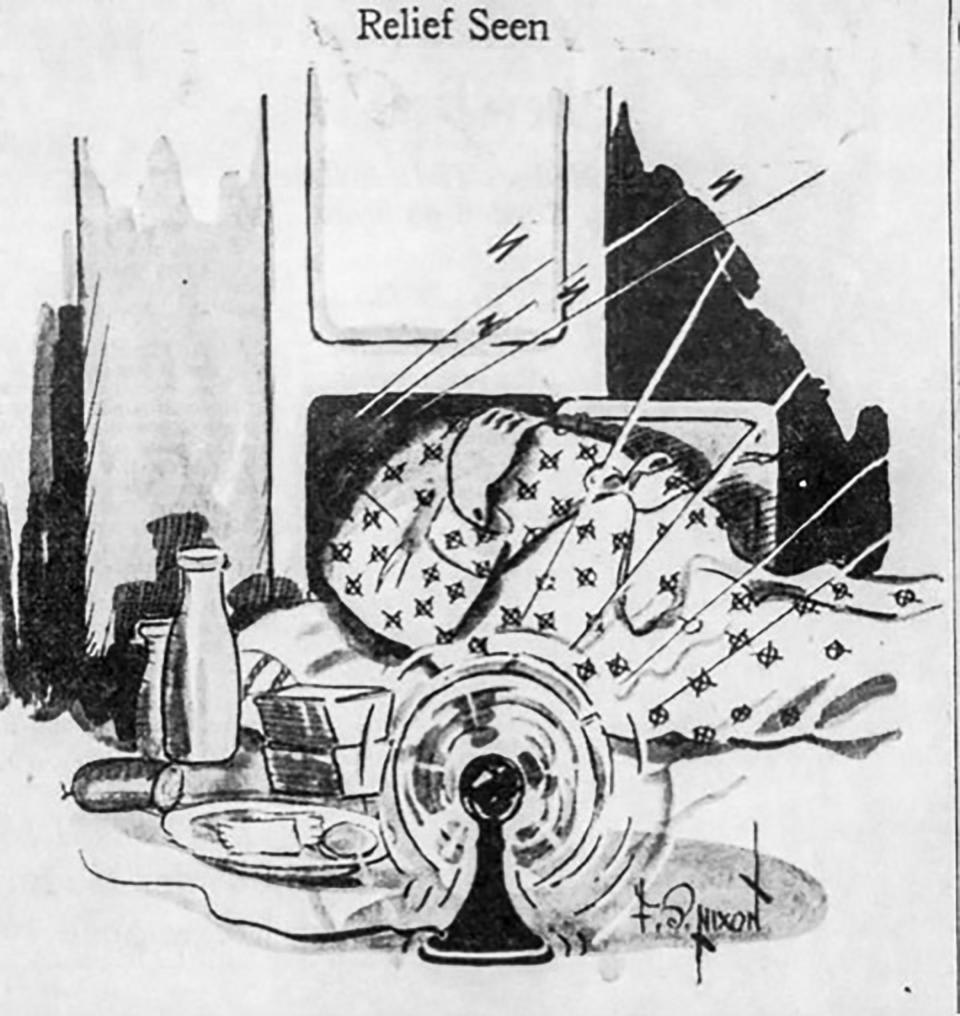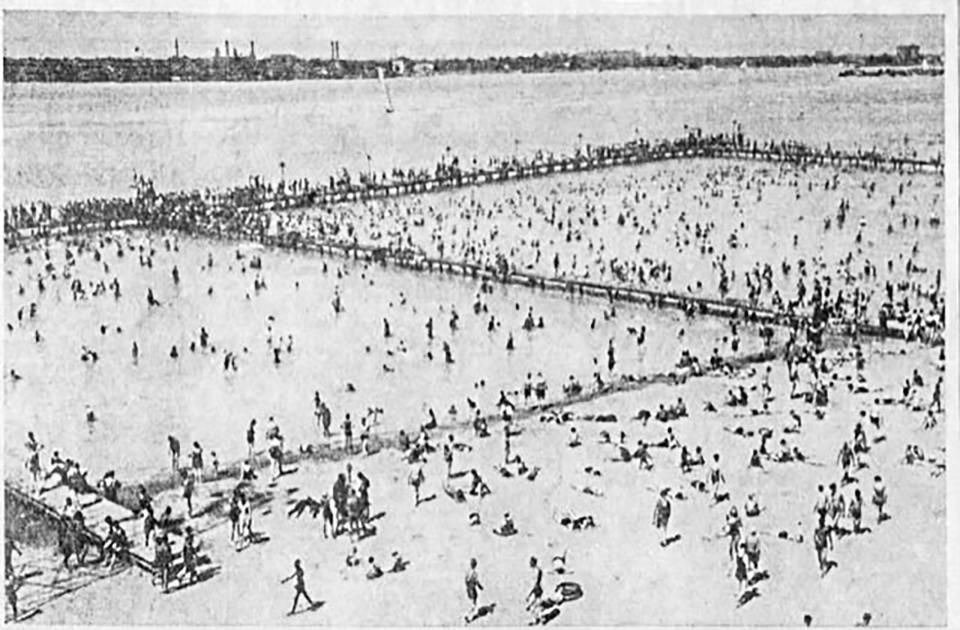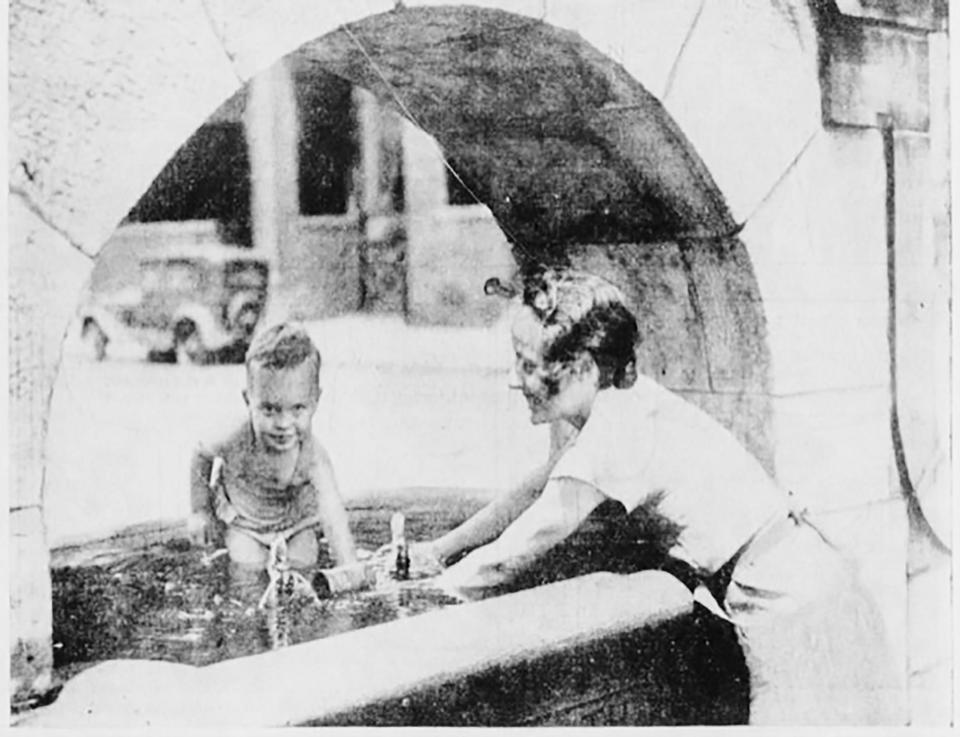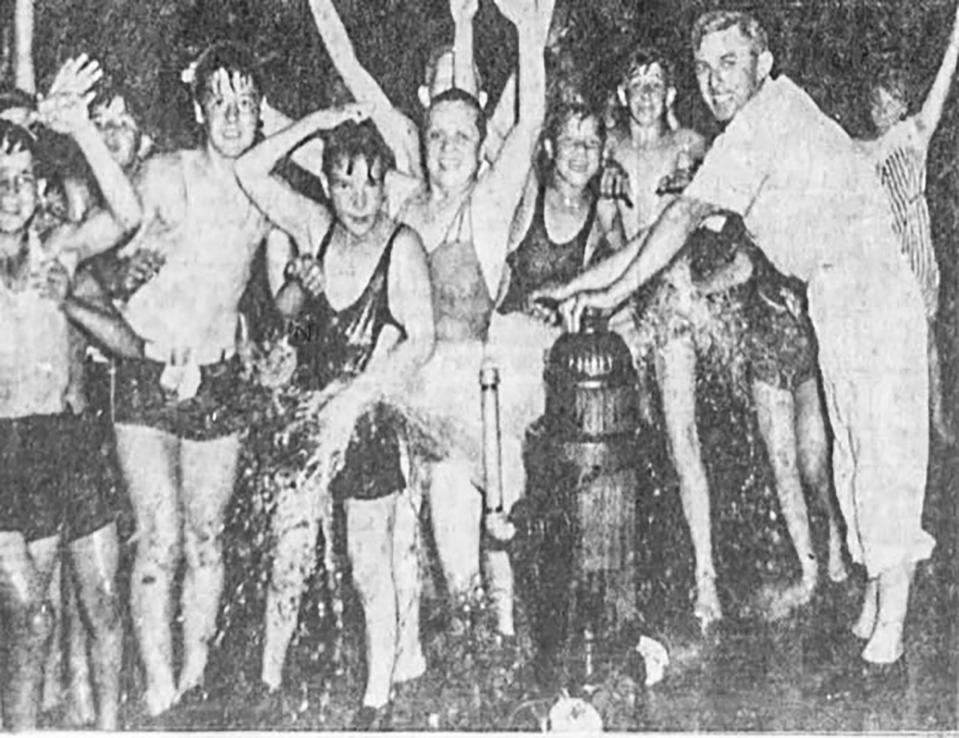Free Press Flashback: Hundreds died in Michigan during 1936 heat wave
The Great Depression summer of 1936 is infamous for the heat wave that struck much of the nation, a byproduct of Dust Bowl conditions on the Plains. More than 5,000 people died nationally, including hundreds in Michigan. Few homes or buildings had air conditioning, and crowded big cities, like Detroit, were hit hard. This story appeared on Page One of the Free Press on July 14, 1936.
With the total heat deaths in Michigan mounting past the 400 mark, this state led the other 47 Monday in the number of sun victims, and Detroit suffered its sixth consecutive day of 100-degree temperatures.
The top figure was 102, at 2:30 p.m. Deaths in Detroit mounted rapidly during the day, and at midnight the figures stood at 64, bringing the total for the present heat wave to 186.
In all of Michigan, including Detroit, the deaths numbered 405. No end to the heat wave was seen for Tuesday by Clarence J. Root, government forecaster. Fair and continued hot is the forecast, he said.
Coroners said that the victims of the heat are dying at the rate of approximately one every 20 minutes in the city, and that an accurate check on the dead was almost impossible.
The oldest victim was 107-year-old Jack Sanders, of 3729 Russell Street, who had been born into slavery in Norfolk, Virginia, in 1829. He worked as a farmer after the Civil War and was brought to Detroit by his daughter 12 years ago.
The youngest was Herbert Byers, six months, who died at his home at 963 E. Columbia.

That cooler weather may not be far away, though, was indicated by late forecasts for other parts the state. The northern portion of the Lower Peninsula should be cooler Tuesday, it was said. The cooler weather accompanied by showers should reach western Michigan by Wednesday. Lower temperatures and rain also are expected to bring the Upper Peninsula relief by Wednesday.
Michigan leads the nation
The hot spell is the most prolonged in the history of the Detroit Weather Bureau. Only once before has Detroit seen more than two consecutive days of above-100-degree temperature. Temperatures have been 16 to 18 degrees above normal.
Detroiters flocked to northern Michigan on trains, buses and planes. Four extra cars were added to the Friday night train to Mackinaw City. Among those left behind, many slept on front lawns or on the grass at Belle Isle.

The Board of Health recommended people beat the heat by putting a pinch of salt in a glass of cold water. It counseled against going swimming after perspiring.
More persons have died in Michigan than in any other state, a compilation by the Associated Press revealed. The next state was Illinois, where 266 have died. Michigan's deaths accounted for nearly one-quarter of the nation's total.
From Eloise Hospital came the word that 42 had died there in the last six days from heat prostration, and that the deaths of 44 others were hastened by the heat.
Officials of the General Motors Corp. announced that they have sent word to all their 65 factory heads that, if they and the workers decide it is desirable, they may shut down during the hot spell. K.T. Keller, president of the Chrysler Corp., said that its plant officials might also use their discretion about shutting down if they think it is wise.
Hospital facilities were taxed to the utmost in Detroit, and at Receiving Hospital corridors continued to be used as wards for the prostration victims. From time to time the deaths were so numerous that there was not time to take the bodies to the County Morgue.
The hospital had 637 patients and has a 600-patient capacity. Officials at the morgue said that they had "never seen anything like it," and that the scene resembled one after a major catastrophe.
An all-time record in Houghton

Undertakers reported calls for their services comparable only to the worst phases of the World War I-era influenza epidemics. Drownings accounted for many deaths in the state, but were attributable only indirectly to the heat.
One of these brought a second tragedy. Ellas Kallio, 24 years old, of Covington, west of Marquette, drowned in Long Lake there. His sister Lillian and a friend, Wino Holms, started for L’Anse to get a doctor in the hope that Kallio might be revived. Their speeding car skidded from the road and both received injuries which surgeons believe will be fatal.
While Detroit simmered at 102; Monday, in other sections of the state temperatures soared to new heights.
Saginaw, with an official record of 111, set what was reported as an all-time high for Michigan. Bay City had 108.8. Escanaba saw its hottest day in 20 years with 99 degrees in the shade. An unofficial temperature of 112 was recorded at Durand.
Other Michigan hot spots included Hillsdale 102: Owosso, 108; Kalamazoo, 107; Flint, 108; Battle Creek, 103; Adrian, 107: Muskegon, 101; Grand Rapids, 108; Lansing, 99; Jackson, 108; Marquette, 100; Coldwater, 104; Houghton, 103.5 — an all-time record; Sandusky, 105; Ionia, 106; and Ann Arbor, 102.8.
More: Free Press Flashback: In 1967, Detroit firefighter might have been killed by friendly fire
Mt. Pleasant received violent relief from the heat at 6 p.m. Monday when, after a day which saw an all-time mark of 110, a downpour of rain and wind of gale proportions struck. Streets became rivers for a few minutes, windows were blown in and trees uprooted.
Few workers opt to cool it
As in Detroit, the heat buckled highway pavement outstate, one of the principal humps appearing on US-112 three miles east of Clinton. Washtenaw Avenue in Ann Arbor broke in three places and a section of Whitmore Lake Road also bulged dangerously.

The Upper Peninsula continued to be nearly as hot as the lower sections of Michigan, and deaths from heat prostration were reported as far north as Marquette and Sault Ste. Marie.
The heat has taken the zeal out of criminals. Police records show that the number of complaints of criminal offenses in Detroit has declined from an average of 75 to 100 a day to less than 20.
Ordinarily there are 40 to 50 simple larcenies reported daily, and an equal number of complaints of major crimes, said Inspector George Abel, of the Record Bureau. But last Saturday there were only 19 complaints altogether.
Despite the announcement of the motor company heads, few factories had been closed so far because of the heat. A General Motors official explained that the men, being paid by the hour, wanted to work as long as humanly possible rather than lose wages.
The Bohn Aluminum Co. reported several of its plants closed, and the remainder working only long enough to keep parts moving to other factories.
Receiving Hospital ran out of cribs used for transporting dead bodies to the morgue, and Supt. G.R. Harris asked that the morgue let the hospital use some of theirs.
More: Flashback: Remembering Detroit’s last pro football champs – the Michigan Panthers
Dr. T.K. Gruber, who said that the present heat has caused “the most ghastly death wave I have ever witnessed” at Eloise Hospital, asked the Wayne County Board of Auditors for 24 more fans for the suffering Eloise patients.
“Ordinarily we have about two deaths a day,” said Dr. Gruber. “In the last six days there have been 86 deaths, and at least 42 of them have been directly attributable to the heat.”
It was next to impossible to buy a fan in Detroit Monday. Retailers and wholesalers reported a sellout.
The city’s parks and lakeshores have become so popular during the hot spell that there is scarcely any spot within hailing distance of water that is not crowded.
This article originally appeared on Detroit Free Press: Hundreds died in Michigan during 1936 heat wave

